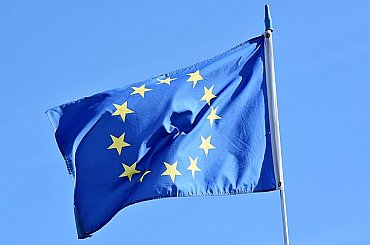The EU needs a balanced energy system to ensure security of supply
The EESC’s June plenary saw the adoption of an opinion urging the bloc to diversify and innovate its energy system to ensure stability and move to decarbonisation.

The European Economic and Social Committee (EESC) calls for a balanced energy system in the European Union, one which can achieve three key goals: energy affordability, carbon neutrality and energy security.
In the opinion Towards a balanced European energy system, drawn up by Zsolt Kükedi and Philippe Charry and adopted at the June plenary session, the Committee backs the European Commission’s efforts to create an affordable, sustainable and stable energy supply framework for businesses and consumers.
In the EESC’s view, to put in place a balanced European energy system, the EU must take some important steps, such as transitioning to clean energy and electrification, improving grid connections, diversifying sources and enhancing storage and management. At the same time, the EU must also promote a circular economy and efficiency, increase awareness of sufficiency, align its policies and invest in research and innovation for energy security and equity.
Energy sources must be stable
The energy system in Europe is becoming more unbalanced due to the growing share of weather-dependent renewable sources such as wind and solar, which are intermittent. To have a reliable power supply, the EU needs stable energy sources, which are often fossil fuels.
A balanced European energy system is essential not only to ensure energy stability and balance, but also to achieve the climate goals, making use of regional potential, promoting economic growth and social impact and advancing technological innovation and leadership.
EU Member States need to balance their growing renewable energy systems while maintaining stability and moving towards decarbonisation. To do so, it is vital to ensure that intermittent energy sources are properly integrated into the energy system.
Baseload generation and a diverse clean energy mix
To balance supply and demand, the Committee emphasises the need to maintain baseload generation (nuclear and/or gas) and a diverse clean energy mix, including intermittent and constant production, controllable and non-controllable sources and regional energy differences.
The power outage that occurred in Portugal and Spain at the end of April should be seen as a warning of the urgent need to invest in a modern and well-interconnected energy network which can ensure solid backup generation, include a sophisticated real-time alert system to reduce energy use, and guarantee the cybersecurity of the grid.
‘The European Union needs a balanced and multi-sourced energy system to ensure security of supply,’ said Mr Kükedi. ‘If not properly managed, the ongoing shift from fossil fuels to renewable energy in Europe, although necessary, will put us at risk in terms of supply security and price stability, and the recent blackout on the Iberian Peninsula demonstrates the vulnerability of the grid and the need for stable and flexible baseload capacity.’
To strengthen grid stability, the EU must set requirements for fast-response storage, dynamic frequency control, and artificial inertia from inverter-based generation. In this regard, a European real-time Digital Grid Observatory would enhance cross-border coordination and emergency responses.
Research and innovation
According to the EESC, it is also important to examine how to make better use of underexploited sources and accelerate innovation. For example, research could dig into the potential of geothermal energy for electricity and biogas for local production, while innovation could increase efficiency, digitalisation, grid flexibility and sectoral integration.
Renewables have reduced costs and emissions, making solar and wind competitive, but their weather dependence causes volatility in supply and prices. On top of this, limited storage and outdated grids bring about congestion and imbalances.
‘The challenges are huge, especially in terms of energy investment and grid development, but it is key to maintain affordable energy prices for both consumers and industry,’ said Mr Charry. ‘We encourage decision-makers to focus efforts on research and innovation while creating employment in transitional sectors and adopting concrete measures to train workers for the evolving energy landscape.’
Affordable energy and involvement of youth and local communities
Another aspect of a balanced energy system is energy affordability. The energy transition must not deepen existing inequalities and, as energy prices rise and renewables are deployed unevenly, there is a risk of leaving vulnerable groups behind. For this reason, the Committee calls for policies that ensure access to affordable, reliable and sustainable energy for all Europeans, and for targeted support for the households and regions that are most exposed to energy poverty.
To foster broad public acceptance and long-term sustainability, decision-makers must involve young people and local communities. Energy communities and citizen-led renewable projects play a growing role in balancing local demand and supply, reducing dependence on large utility providers and improving public support for the energy transition.
Related articles
Utilities SRP and ED3 seeking offtake deal for esVolta’s newly-approved 3.2GWh Arizona BESS
The Board of Supervisors (BoS) for Arizona’s Pinal County has given the go-ahead to developer and IPP esVolta to construct 3.2GWh…
2025 concludes with 1.5GWh+ of European BESS project completions, financing and supply deals
It’s our first week back to normal service so here’s a roundup of the past few weeks of BESS action in Europe, with projects movin…
India’s biggest solar manufacturer Waaree raises funds toward 20GWh energy storage factory
An energy storage subsidiary of Waaree Energies has raised INR10 billion (US$110.9 million) in funding for a planned manufacturing…
World’s first gigawatt-hour-scale flow battery project goes into operation in China
Technology provider Dalian Rongke Power (Rongke Power) and infrastructure developer China Three Gorges Corporation (CTG) have brou…
DOE awards USD2.7 billion to strengthen US uranium enrichment
General Matter, American Centrifuge Operating and Orano Federal Services have each been awarded USD900 million of funding by the U…
Event calendar
ENERGY-HUB is a modern independent platformsharing news and analytic articles from the energy sector on a daily basis. Within our portfolio we monitor czech, slovak and foreign press releases.



